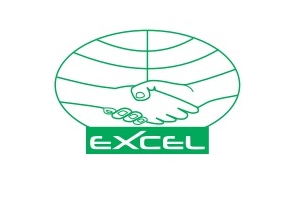Get A Quote
Get A Quote
+91

Home

Account

Get A Quote

About Us
Products
Materials
Contact Us
Connect with us
Get A Quote

Home

Account

Get A Quote

Stainless steel 904L pipes is a non-stabilized austenitic stainless steel; the "L" in 904L stands for low carbon, indicating that the carbon content is kept low to enhance corrosion resistance. It contains high amounts of chromium, nickel, molybdenum, and copper, contributing to its excellent corrosion resistance in various environments, including sulfuric acid, phosphoric acid, and chloride ions. Its high alloy content also provides exceptional resistance to crevice corrosion and stress corrosion cracking. These pipes are available in various sizes, schedules, and specifications to suit industrial requirements. They are often used in piping systems for transporting corrosive fluids and gases where durability and reliability are crucial.
Discover the corrosion-resistant excellence of 904L stainless steel pipes through a comprehensive table showcasing chemical composition.
Element | % Present (in product form) |
Carbon (C) | 0.02 |
Silicon (Si) | 0.70 |
Manganese (Mn) | 2.00 |
Phosphorous (P) | 0.03 |
Sulfur (S) | 0.01 |
Chromium (Cr) | 19.00 - 21.00 |
Nickel (Ni) | 24.00 - 26.00 |
Nitrogen (N) | 0.15 |
Molybdenum (Mo) | 4.00 - 5.00 |
Copper (Cu) | 1.20 - 2.00 |
Iron (Fe) | Balance |
904L stainless steel pipes exhibit superior corrosion resistance and robust properties, ensuring durability in diverse applications.
Explore the robust strength and durability of 904L stainless steel pipes through a detailed mechanical properties table.
Temper | Annealed | |
| Tensile Rm | 71 | ksi (min) |
| Tensile Rm | 490 | MPa (min) |
| R.p. 0.2% Yield | 32 | ksi (min) |
| R.p. 0.2% Yield | 220 | MPa (min) |
| Elongation (2” or 4D gl) | 35 | % (min) |
904L stainless steel pipes shows exceptional mechanical properties, ensuring strength, durability, and reliability in varied applications.
Following are the Stainless Steel 904L Pipes used in industrial sectors.
Therefore, Stainless Steel 904L Pipes across different industries are versatile, durable and perform under harsh conditions.
Below are the applications of Stainless Steel 904L Pipes used in industrial applications.
Stainless steel 904L pipes offer a compelling combination of corrosion resistance, durability, and versatility, making them indispensable in various industrial applications.
Stainless steel 904L pipes is a non-stabilized austenitic stainless steel; the "L" in 904L stands for low carbon, indicating that the carbon content is kept low to enhance corrosion resistance. It contains high amounts of chromium, nickel, molybdenum, and copper, contributing to its excellent corrosion resistance in various environments, including sulfuric acid, phosphoric acid, and chloride ions. Its high alloy content also provides exceptional resistance to crevice corrosion and stress corrosion cracking. These pipes are available in various sizes, schedules, and specifications to suit industrial requirements. They are often used in piping systems for transporting corrosive fluids and gases where durability and reliability are crucial.
Discover the corrosion-resistant excellence of 904L stainless steel pipes through a comprehensive table showcasing chemical composition.
Element | % Present (in product form) |
Carbon (C) | 0.02 |
Silicon (Si) | 0.70 |
Manganese (Mn) | 2.00 |
Phosphorous (P) | 0.03 |
Sulfur (S) | 0.01 |
Chromium (Cr) | 19.00 - 21.00 |
Nickel (Ni) | 24.00 - 26.00 |
Nitrogen (N) | 0.15 |
Molybdenum (Mo) | 4.00 - 5.00 |
Copper (Cu) | 1.20 - 2.00 |
Iron (Fe) | Balance |
904L stainless steel pipes exhibit superior corrosion resistance and robust properties, ensuring durability in diverse applications.
Explore the robust strength and durability of 904L stainless steel pipes through a detailed mechanical properties table.
Temper | Annealed | |
| Tensile Rm | 71 | ksi (min) |
| Tensile Rm | 490 | MPa (min) |
| R.p. 0.2% Yield | 32 | ksi (min) |
| R.p. 0.2% Yield | 220 | MPa (min) |
| Elongation (2” or 4D gl) | 35 | % (min) |
904L stainless steel pipes shows exceptional mechanical properties, ensuring strength, durability, and reliability in varied applications.
Following are the Stainless Steel 904L Pipes used in industrial sectors.
Therefore, Stainless Steel 904L Pipes across different industries are versatile, durable and perform under harsh conditions.
Below are the applications of Stainless Steel 904L Pipes used in industrial applications.
Stainless steel 904L pipes offer a compelling combination of corrosion resistance, durability, and versatility, making them indispensable in various industrial applications.







































-1688635827661.webp)






No more suppliers available.
Website Banner